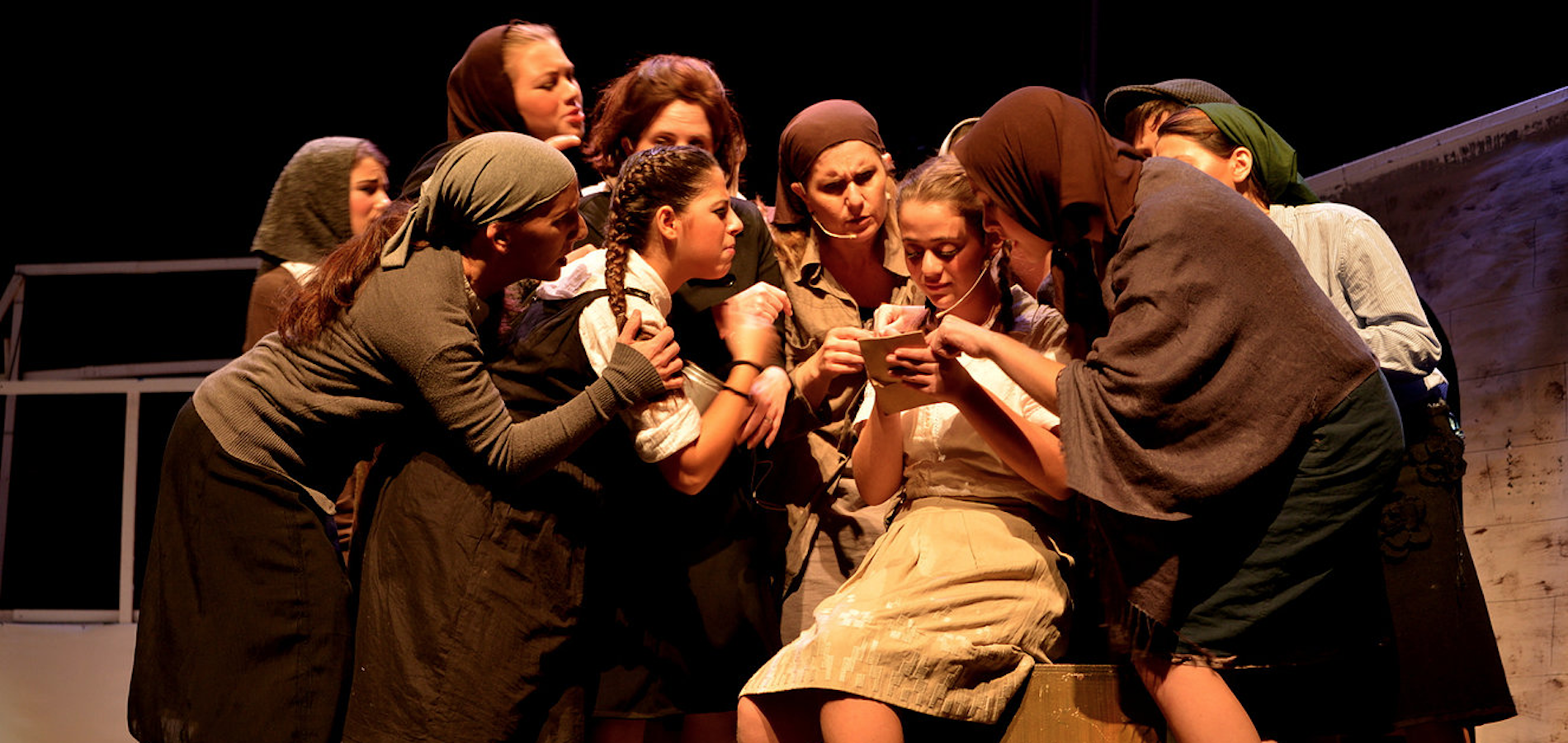
The Orthodox Jewish Female Theater Troupe Taking Israel By Storm
The WIT, Women in Theater troupe is an all-female, theatre company based in Israel which “provides a platform for women who are observant to be able to perform” as stated by the managing director, Ninoska Ravid. She further explains, “our goal is to be able to create quality pieces of quality productions.” Ravid joined in 2010, only two years after its establishment in 2008 [by co-founder Penina Fredman-Schechter and co-founder Tamar Krantman Weiss]. Her previous work experiences have been in the fields of education and business management. She is currently also running a successful preschool and acting program for children.
Ravid was born in Latin America and her ancestral roots are from Spain. She moved to America at the age of six and was first introduced to the art of theatre when starring in a production in the first grade. Ever since then, “The theatre was just like my life – it spoke to me on so many levels.” She did not grow up religious, but the question of frumkeit surfaced in the course of learning about Greek and Roman mythology when she was 12. The actions that followed were ones mirroring that of the biblical Jethro, Moses’ father-in-law due to her own initiation in tackling the truth. The library became her hunting ground. She analyzed all religions and eventually concluded that Judaism trumps them all. Ravid says that this is the point in which she had “fallen in love with Judaism” and thus started observing Orthodoxy.
Throughout high school and college, she studied theatre. Once miscellaneous theatre gigs started being offered to her, many of them on Shabbos, she expresses that “there came a point where I had to make this decision – where I just had to say no.” She then moved on to marry, have kids and make aliyah to Israel in 2010 to Modi’in. But she never really “moved on” since you can take a woman out of theatre but never vice versa. As she states, “I have this love for the theatre, every aspect of it from creating something from the bottom up.” She never believed in compromising her religious values nor theatre standards and dreams, and that is what guided her to WIT’s doorstep in 2010.
Women in Theatre puts on one major production a year, filling approximately 3,000 seats, along with additional, smaller shows to accompany national holidays and events like Yom Yerushalayim, Yom Hashoah, Yom Ha’atzmaut etc. They pride themselves on being both observant women and talented, professional actresses. Although WIT has been designed specifically to meet the needs of the Orthodox community, many non-observant women are welcomed as well and do join these productions year-round. There’s a feeling of sisterhood amongst all the women regardless of observance level since as Ravid relates, “They want to be in a place where it’s supported by women.” Regarding the Orthodox women, they love the fact that they can “express [them]selves within the confines of the Torah world”.
Some female-friendly plays that WIT has performed are “Our Town”, “Fiddler on The Roof” and others like them. Each production casts around 50-65 women of all ages and backgrounds. Before the curtains are drawn, many are skeptical, but once the curtains close, people leave in awe at what they just watched. As Ravid explains, “A lot of it has to do with how you walk, and how you talk…there’s a lot of work that goes into the rehearsal process to help women learn” to adopt a convincing, masculine persona on stage. What makes WIT unique is that they are a non-profit organization, which takes educational material and weaves it into the fiber of their theatrical experience. All members of the cast and crew learn about their current production in a new light that compares and contrasts its greater context with Israel’s historical and cultural context.
Three-quarters of the cast come from religious homes, also known as being “frum from birth”, and the remaining quarter is ba’alei teshuva. Despite their religious differences, Ravid states that “After a while it just becomes like ‘oh you’re just like us’ or ‘oh that makes sense’” between the religious groups and their respective level of observance. It’s an eye-opening experience for all. Similarities are highlighted, respect is exchanged, and friendships are fostered. The labels simply fall away when they meet and share their passions on common ground – literally and figuratively [the stage].
If you found this content meaningful and want to help further our mission through our Keter, Makom, and Tikun branches, please consider becoming a Change Maker today.







